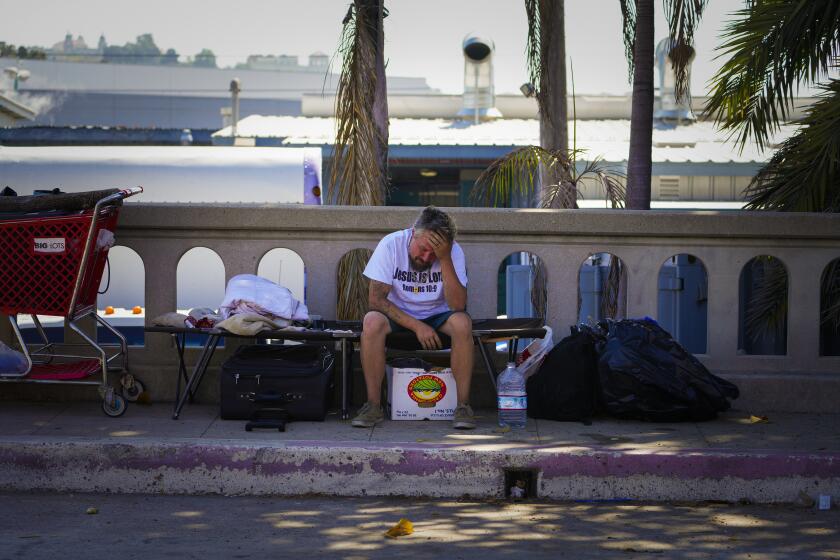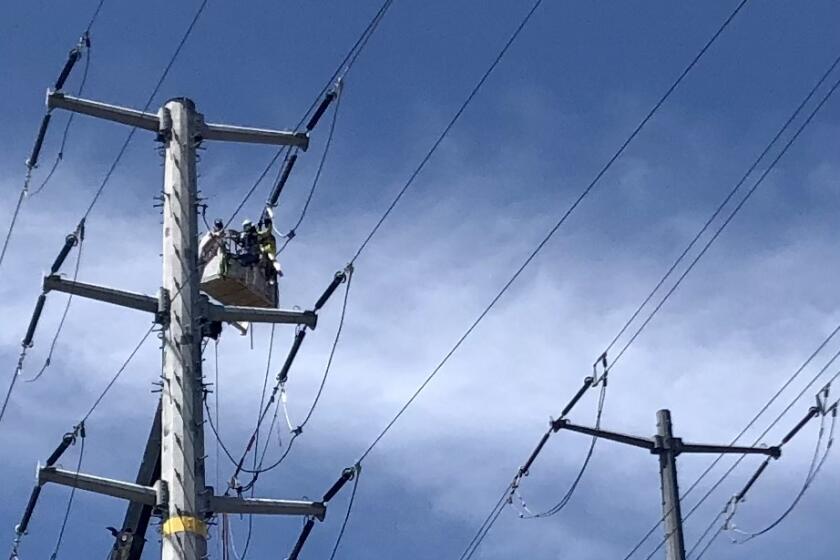Mexico-U.S. sports diplomacy could transcend ugly politics
Earlier this month I asked Mexico’s secretary of the economy, Ildefonso Guajardo, whether he fears a Trump presidency will revive the anti-Americanism that, until recent years, was a staple of Mexican life.
Surprisingly, his answer was all about the first-ever “Monday Night Football” game played outside the United States, in Mexico City’s iconic Estadio Azteca. The Oakland Raiders beat the Houston Texans, but what Guajardo found most telling was when the anthems of both countries were played pregame. Despite a few scattered boos, the Mexican crowd’s response was gracious and respectful, a sign that positive attitudes toward people on the other side of the border can transcend demagogues’ efforts to distort the truth of our mutually beneficial North American partnership.
One can only hope. The stark reality is that Donald Trump won the presidency by running against Mexico. For a candidate with a short attention span, his views on Mexico were remarkably consistent. Mexican immigrants are rapists who must be deported; the North American Free Trade Agreement is a disaster that must be torn up; indeed, Mexico is so dodgy, we need to build a massive wall along the 2,000-mile border.
Forgive Mexicans if they take it personally. Mexico has become a far friendlier neighbor — more of the middle class, democratic, open-to-the-world country Washington always wanted — in the two decades since NAFTA went into effect. But you hardly ever see this acknowledged in the U.S. media, or politics.
One big question is whether Trump really believes his own anti-Mexico vitriol, or whether it was simply populist performance. On the other side of the border, another big question is whether the mere act of electing such an anti-Mexican president will tarnish the United States in Mexican eyes for a generation to come. There are plenty of populist Mexican politicians eager to match Trump’s xenophobic nationalism, as Mexico gears up for its 2018 presidential election.
In this context, I take heart at the outbreak of sports diplomacy between the two countries. On the Friday after the election, the U.S. and Mexican national soccer teams met in Ohio for a World Cup qualifying match. The rivalry is heated, but on this occasion the American sportsmen worried that Trump-style invective might rear its ugly head. Michael Bradley, the U.S. captain, eloquently said before the game: “I would hope our fans do what they always do, which is support our team in the best, most passionate way possible. I would hope they give every person in that stadium the respect they deserve, whether they are American, Mexican, neutral, men, women, children.” Mexico won, 2-1, but there were no chants about building a wall.
In January, the Phoenix Suns are playing regular-season NBA games against the Dallas Mavericks and San Antonio Spurs in Mexico City. Much like the NFL, with its estimated 20 million avid fans in Mexico and talk of a possible franchise there, the NBA is treating Mexico as a venue for future growth, with its expanding middle class and an appetite for American culture. The U.S. cities these basketball teams represent are organizing events alongside the games to attract more Mexican investment, trade and tourism.
Mexico is the second largest buyer of U.S. goods in the world. Fortune 500 companies increasingly see North America as one integrated manufacturing platform too, a manufacturer that is more competitive with other parts of the world as a cohesive unit. Politicians bash companies like Ford for opening plants in Mexico, but 40 percent of the components of the goods imported from these plants are produced in the U.S., demonstrating just how seamless the back-and-forth is within North American supply chains.
Back in the realm of sports diplomacy, one way for North Americans to transcend the ugliness of politics and assert a shared identity would be by hosting a World Cup together. The 2026 World Cup is the next one to be awarded, and the North American region is a strong contender, given the tournament’s traditional rotation among continents. Both Mexico and the U.S. are expected to submit compelling bids.
There has also been talk throughout the year of a potential joint U.S.-Mexico bid; World Cups are typically played in eight host cities, and there’s the precedent of Japan and South Korea sharing the 2002 Cup. But that talk was followed by speculation that Trump’s election makes a joint bid less likely.
It would be shame to abandon the idea on account of politics. Quite the contrary: A shared North American World Cup (can we include Toronto too?) is needed, now more than ever.
Martinez is the editorial director of Zócalo Public Square and a professor at the Walter Cronkite School of Journalism at Arizona State University. Twitter: @andresDCmtz
Get Weekend Opinion on Sundays and Reader Opinion on Mondays
Editorials, commentary and more delivered Sunday morning, and Reader Reaction on Mondays.
You may occasionally receive promotional content from the San Diego Union-Tribune.




